Could Napoleon win the Battle of the Peoples?
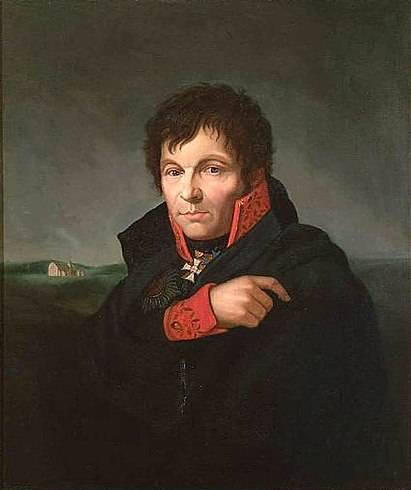
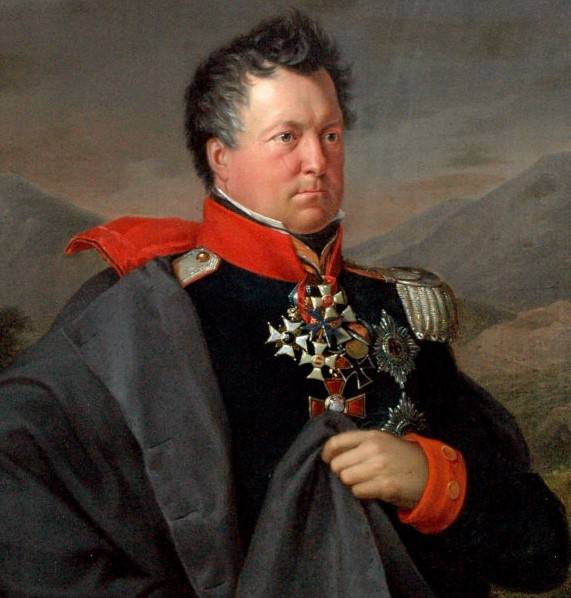
Where will we win? In Silesia, in Bohemia? In Saxony!
It is hard to say if the Russians would have survived the May battles of 1813 of the year at Lutzen and Bautzen under the command of Kutuzov, if he were still alive. The urgently taking over the post of Commander-in-Chief Wittgenstein, still a very young favorite of Alexander I, the savior of Petersburg, had very motley forces under his command, and he can hardly be considered the culprit of the first Allied defeats in the new campaign against Napoleon.
The accession of the Prussians, led by Blucher, who was pulled into the heroes by the leaders of the Tugenbund Gneisenau and Scharngorst, has not yet indicated the decisive advantage of the Allies over the French. Blucher only managed to inflict a brutal defeat on the French avant-garde when retreating from Bauzen. But the Pleswitz truce that soon followed, which Napoleon made mainly because of the internal problems of France, became, in fact, saving for the new anti-French coalition.
Napoleon’s main miscalculation turned out to be a bet that Austria would remain its ally, especially considering that the heir to the French throne was the grandson of Emperor Franz. Meanwhile, Franz has long since actually given his foreign minister Metternich carte blanche to break with Napoleonic France. The negotiations that were held at the Prague Congress, and then at Neymarkt, actually initially could not bring results in favor of France, but the transition of Austria to the side of the Allies nevertheless was a big surprise for Napoleon.
In early August of 1813, Field Marshal Prince KF F. Schwarzenberg, who in the war with Russia only commanded the 40-thousandth corps, suddenly descends from the mountains of Bohemia in the valleys of Saxony at the head of the almost 200-thousandth Bohemian army, half-staffed by Russians. The heavy defeat inflicted on the allies by the French emperor at the Battle of Dresden forced the Russians and Austrians to retreat back through the narrow defile of the Ore Mountains on their way to the hereditary lands of the Hapsburg crown.
For several weeks, Napoleon hatched grandiose plans to encircle his main opponent, counting, among other things, on a deep maneuver through the fortress of Pirn. However, a direct invasion of Bohemia after the defeated army of Schwarzenberg could well result in the loss of Prussia and Saxony, not to mention the north-east of Germany - Pomerania and Mecklenburg. Indeed, there, with the exception of several fortresses, along with the Prussian landver, the Swedes ruled almost everywhere (see The first shot to the west from the Neman to the Elbe)
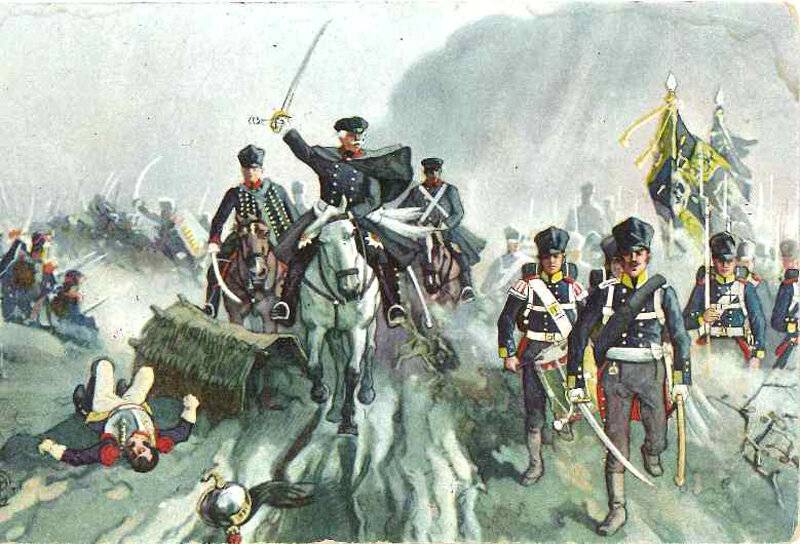
As a result, Napoleon did not succeed in extracting the fruits of the victory. The Allied armies learned well the lessons they had once learned, and despite their fragmentation, they learned to act in concert. First, a strong retaliatory strike for Dresden was delivered to the Russians by the Russians, who defeated and almost completely captured the bypass French column of General Vandamm under Kulm. And soon, the whole army of Napoleon could be in danger of losing communications and even complete encirclement.
One after another, the marshals of Napoleon suffered serious setbacks - first MacDonald at Katzbach, and then one after another Udino and Ney in the battles of Gross-Beeren and Dennevice. The offensive in Bohemia was postponed, Napoleon, rather expected to lure the allied forces from there for a decisive battle.
Irreparable loss
In the hardest campaign of 1813, the Napoleonic marshals not only suffered defeats, they perished themselves. Later, after the Battle of the Peoples was lost, covering the retreat of the main forces, the brilliant Jozef Poniatowski, who had just received the Marshal’s rod from Napoleon, could not get out of the waters of Elster.
He was the nephew of the last king of the Polish-Lithuanian Commonwealth, and Napoleon subsequently declared that "Poniatowski was the real king of Poland, he possessed all the titles and all the talents for this ..." The emperor of the French repeatedly said that "he was a noble and brave man, a man of honor. If I had succeeded in the Russian campaign, I would have made him king of the Poles. ”
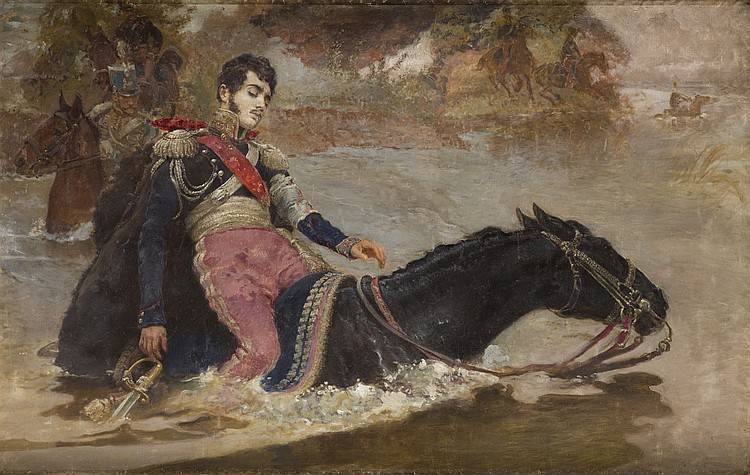
However, Napoleon for some reason preferred to confine himself to appointing him Minister of War in the Grand Duchy of Warsaw organized by him. However, he did not have the courage to regain independence to the Poles, although not half a century has passed since the collapse of the Polish-Lithuanian Commonwealth. Apparently, among the reasons for this, in the first place is the irresistible desire of the Corsican parvenu Napoleon Buonaparat to enter the large family of European monarchs.
And even earlier Poniatowski fell Marshal Bessières. The son of the Languedoc surgeon from Preisac, who worked as a barber, Jean-Baptiste, chose a military career with the start of revolutionary wars. His characteristic Jacobin hairstyle - long, quickly turning gray hair, was recognized from afar, even under a general's cocked hat. Under the leadership of Bessiere, who received the marshal’s wand among the first, for many years there was a guards cavalry, and he never recognized the superiority of Murat as a cavalryman.
A convinced republican, in spite of everything - on titles and a marshal’s rod, and on a personal friendship with the emperor, to whom he never hesitated to tell the truth, Bessières was a real favorite of the army. Once, during the battle of Wagram, when a horse was killed under him and the marshal was shell-shocked, he was considered dead. The army was already mourning for its beloved leader, and when Bessieres was able to return to duty, the iron-sided rushed into the attack with renewed vigor.
Marshal Bessières was hit by the Prussian core of 1 on May 1813 in a skirmish near Weissenfels on the eve of the Battle of Lutzen. Soon after, Napoleon lost another friend, also a marshal, but the court - Gerard Duroc, Duke of Friuli. Bessiere’s death was a prelude to Napoleon’s first victory, and Duroc’s death happened immediately after Napoleon’s second success in the campaign, under Bauzen.
Contemporaries recalled how the emperor complained: I cannot give another friend for each victory. Duroc, like Bessières, died from a direct hit by an enemy nucleus. This happened a day after the battle of Bauzen near the town of Markersdorf, when the whole Napoleonic retinue watched the entire rearguard of the retreating Russian-Prussian army.
On the monument, which was put on the site of the death of Duroc, on the orders of Napoleon it was written:
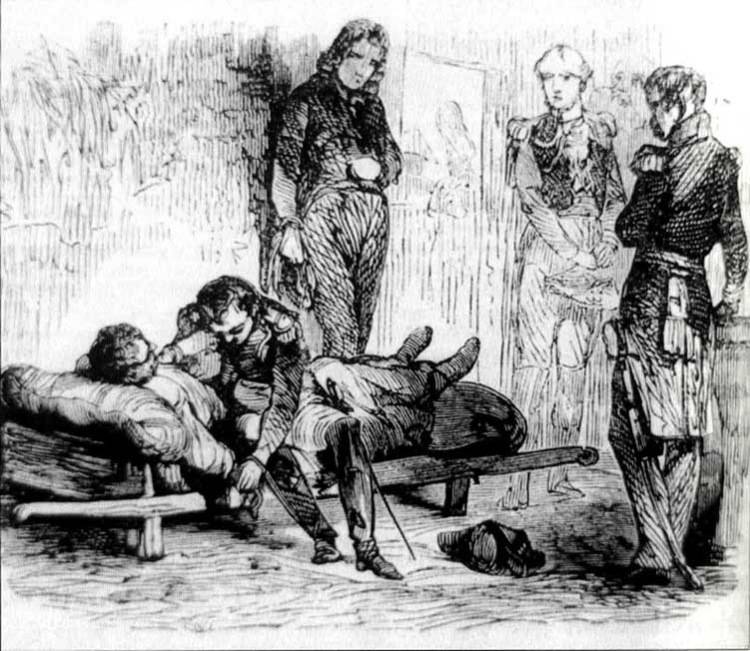
The 1813 campaign of the year turned out to be extremely bloody, and numerous losses were also in the allied generals. One of the fallen was the Frenchman, who was called the personal enemy and the most real of Napoleon's rivals - the revolutionary general Jean-Victor Moreau. When Napoleon entrusted the imperial crown, he first sent the ardent Republican Moreau to the North American States, on the apparently far-fetched suspicion of involvement in the royalist conspiracy.
A former French general who was to lead the Allied armies, Moreau received a mortal wound in the first minutes of the battle of Dresden. At that moment, the Russian Emperor Alexander was next to him. It is believed that the cannon that defeated the general was personally charged by Napoleon, it was on this legend that Valentin Pikul built the plot of the famous novel “To Each His Own”. French General Moro is buried in St. Petersburg, in the church of St. Catherine on Nevsky Prospekt.
Not to Dresden, but to Leipzig
After his marshals failed to cope with Blucher and Bernadotte, Napoleon made every effort to push the Allied armies - Silesian and Northern as far as possible from the decisive battlefield near Leipzig. There, in the first half of October, the 220-thousandth Bohemian army began to advance slowly, but compactly enough.
Alexander I, who, despite the first setbacks in the campaign, was still determined to reach Paris, placed his headquarters precisely under the Bohemian army. He invited there not only the Prussian king and the Austrian emperor, but also many courtiers, and not only from Russia. Many historians, not without reason, consider this as perhaps the main reason for the passivity with which the main forces of the allies, led by Prince Schwarzenberg, acted.
However, in the four-day battle near Leipzig, rightfully called the “Battle of the Nations,” Napoleon himself did not provide the Bohemian army with any chance of inaction. By constantly maneuvering, the French commander nevertheless managed to make sure that the Silesian and Northern Army did not have time to approach the battlefield in time. The classics - Marx and Engels, in their famous article on Blucher, written for the New American Encyclopedia, called their fellow countryman almost the main creator of the victory at Leipzig.
Indeed, Blucher, nicknamed “Marshal Forverts” (Forward), not only brought his Silesian army to the walls of Leipzig, but also constantly pushed Bernadotte there. He, as you know, did not dare to accept the offer of Alexander I to lead all the allied armies, but confined himself to the North, a quarter manned by the Swedes - his future subjects. In order to pull the Northern Army to Leipzig, the 70-year-old Blucher, with his colossal combat experience and authority, even agreed to go directly to the former Napoleonic marshal.
However, much more so that the Russian-Prussian-Swedish army of the Crown Prince was in the fields near Leipzig, the Russian emperor personally did. And diplomacy, thanks to which one of the main allies, Saxony, broke away from Napoleon in the most acute moment. However, the so-called "betrayal" of the Saxons was also largely due to the fact that their former commander was most recently Napoleonic Marshal, and now the Swedish Crown Prince Bernadotte has already switched to the side of the anti-French coalition.
Napoleon, meanwhile, without waiting for the Bohemian army to descend from the mountain passes, concentrated the main forces at Duben by October 10, demonstrating his willingness to give battle to the combined forces of the Northern and Silesian armies. There was very little time left before the allied main forces left right behind him, and the emperor made an attempt to force the armies of Blucher and Bernadotte, who were clearly evading the battle, to leave Elba.
With a flank march to Wittenberg, he created a real threat to the communications of the Northern Army, which forced Bernadotte to retreat. If Bernadotte’s army, followed by Blucher, left behind the Elbe, the allies near Leipzig would have almost 150 less than thousands of soldiers. The case would most likely have ended for the Bohemian army with another Dresden, and, as a result, a defeat in the campaign.
It was at this moment that the Swedish crown prince insisted that Alexander place Blucher under his command. Blucher seemed to obey unquestioningly, but managed not only to convince Bernadotte to limit his retreat to Petersberg, very far from the right bank of the Elbe, but also to convince Alexander to expedite the advance of all the forces of the Bohemian army of Schwarzenberg to Leipzig.
Russian and Austrian corps advanced even closer to the approaches to the city. Blucher actually joined his army with Bernadotte's troops, for which he did a circular maneuver to Halle, and was forced to fight Marmont's corps at Möckern. Bernadotte’s army didn’t make any maneuvers; it marched from Petersberg just as slowly as Schwarzenberg’s troops.
Contemporaries claim that the Swedish Crown Prince on the morning of 16 (4 of the old style) in October, when the cannonade was heard from Leipzig, completely stopped the movement of the Northern Army at the village of Selbits, not far from Petersberg. Bernadotte did not pay attention to the persuasion of the Allied commissioners who were at his apartment, and only in the evening he advanced a part of the troops to Landsberg, in one passage from the battlefield.
"Battle of the Peoples" was not the last
In the meantime, hastily advanced to the field of decisive battle, although another allied army obviously did not have time - the Polish one under the command of General Bennigsen, to which the Austrian corps of Coloredo joined. Two other allied armies - Silesian and Northern, were also late, which gave Napoleon another chance. And on the first day of the “Battle of the Nations,” the French commander did his best to take this chance.
Five infantry and four cavalry corps, reinforced by the guard, were ready to bring their full power to the columns of the army of Prince Schwarzenberg, whose center was four Russian infantry and two allied corps under the command of the general from the infantry Barclay de Tolly. At this time, Schwarzenberg insists on his plan of double circumvention of the French positions, which leads only to an unnecessary separation of forces.
However, the Russians were the first to strike. Alexander did not hide his fears that Napoleon was just pretending to attack the Bohemian army, but in fact he was concentrating his forces to attack Blucher's Silesian army. She, with a strength of just over 50 thousand people, noticeably broke away from Bernadotte and could simply be crushed by the French.
On the morning of October 16, Russian infantry convoys launched an attack and even had little success, and even took the town of Wachau in the center of French positions, although then it had to be abandoned under cross-section artillery fire. This forced Napoleon to regroup, abandoning the idea of striking the right flank of the Bohemian army, cutting it off from Blucher. At this time, Napoleon had already received reports that Blucher defeated Marmont, and went to Leipzig from a completely different direction.
The emperor did not pay attention to the movement of Blucher, and decided to crush the Bohemian army with a concerted strike at the center of the allied positions. At the same time, the bypass of the right flank of Barclay was not canceled as an auxiliary strike. About three o'clock in the afternoon, almost 10, the thousandth waves of the French cavalry of Murat, supported by the fire of hundreds of guns and several infantry attacks, including the guards, eventually broke through the positions of the Russians.
Hussars and chevolezhera even managed to break through to the hill on which the allied monarchs and Schwarzenberg were, however they were stopped by the Russian guard and the allied cavalry rushing to the rescue. It was also very timely to transfer General Sukhozanet’s equestrian artillery cannons to the place of the breakthrough immediately.
As a result, the famous attack near Wachau did not become victorious for the French, and did not force the Bohemian army to retreat, although they were ready to issue such an order at the allied headquarters, to which the French cavalry almost broke through. Fortunately, Prince Schwarzenberg rejects the idea of a deep detour of the Napoleonic army between the rivers of Elster and Place, and sends significant forces to help Barclay.
There is a legend that his advisers persuaded Alexander to die. The first among them was Napoleon's personal enemy, the Corsican Pozzo di Borgo, who had not yet received the count title in Russia, but had succeeded in negotiating with Bernadotte on the side of the Allies. The second is the future president of independent Greece, Ioannis Kapodistrias, who is credited with authorship of the famous maxim in the address of Alexander I, who was named by him "Agamemnon of this great battle and the king of kings."
Kapodistrias himself later recalled more than once that Alexander near Leipzig calmly disposed in the most critical minutes of the battle, joking when grenades fell near him, commanding an army of three hundred thousand and surprising the professional military with his strategic considerations.
The turning point in the “Battle of the Peoples” can be considered the second day of the titanic confrontation near Leipzig - October 17, when Napoleon even proposed a new truce to the Allies. After that, not only Alexander, but his whole circle rejected any thoughts about how to end the battle. Napoleon no longer attacked the Bohemian army that managed to survive on the eve, while from the north he was threatened by the Blucher army.
The next day, Napoleon was forced to reduce his extended position, retreating closer to the walls of Leipzig. More than 150 of thousands of allied forces were concentrated against his 300-thousandth army, in which there was an unprecedented amount of artillery - 1400 cannons and howitzers. In fact, on 18 of October, it was only a matter of covering up the retreat of the French army, although the French fought so fiercely that it seemed as if Napoleon was seriously counting on victory.
On that day, the Polish army entered the field, and Bernadotte’s troops also appeared on the battlefield, who, despite the Crown Prince’s direct ban, took part in the storming of Paunsdorf. On the same day, at the climax of the battle, the entire Saxon division, which fought in the ranks of the Napoleonic troops, switched to the side of the Allies.
There were not so many Saxons near Leipzig - just a little more than three thousand with 19 guns, but soon Württemberg and Baden units from the Napoleonic forces followed their example. Dmitry Merezhkovsky wrote brighter than others about how the Germans' refusal to fight for the emperor of the French was reflected in the course of the battle: "A terrible emptiness began to plague in the center of the French army, as if their heart had been torn from it."
The French managed to retreat to the walls of Leipzig by night. On October 19 day, the assault of the city by the allied forces was planned, however, the Saxon king Friedrich-Augustus managed to send an officer with a proposal to surrender the city without a fight. The only condition of the monarch, whose soldiers had already left Napoleon, was an 4-hour guarantee to French troops to leave the city.
Not all reports reached the agreement, and Russian and Prussian soldiers stormed the outskirts of Leipzig, capturing the southern gates of the city. At this time, the French drove in droves through the Randstadt gates, in front of which a bridge was unexpectedly blown up by mistake. The retreat quickly turned into a stampede, the losses of the Napoleonic army were enormous, and Marshal Ponyatovsky was among those drowned in the Elster River.
The 1813 campaign of the year ended with the French retreating beyond the Rhine. The Bavarians, who also sided with the Allies, tried in vain to block the route of retreat to Napoleon at Ganau. Ahead was the 1814 campaign of the year - already on French soil.
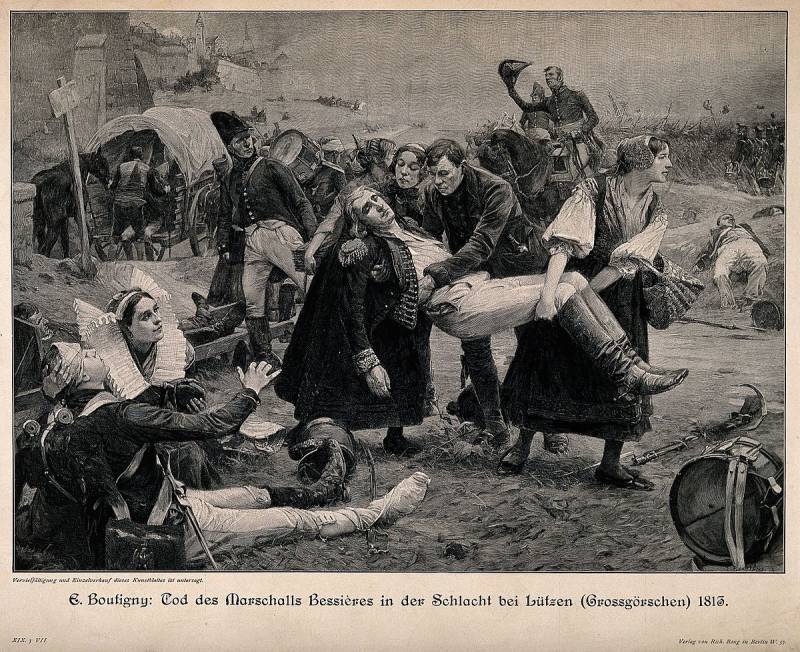
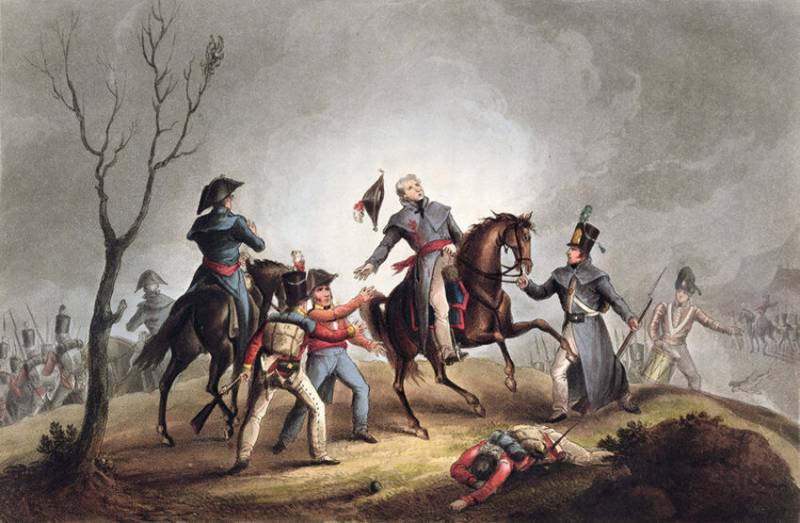
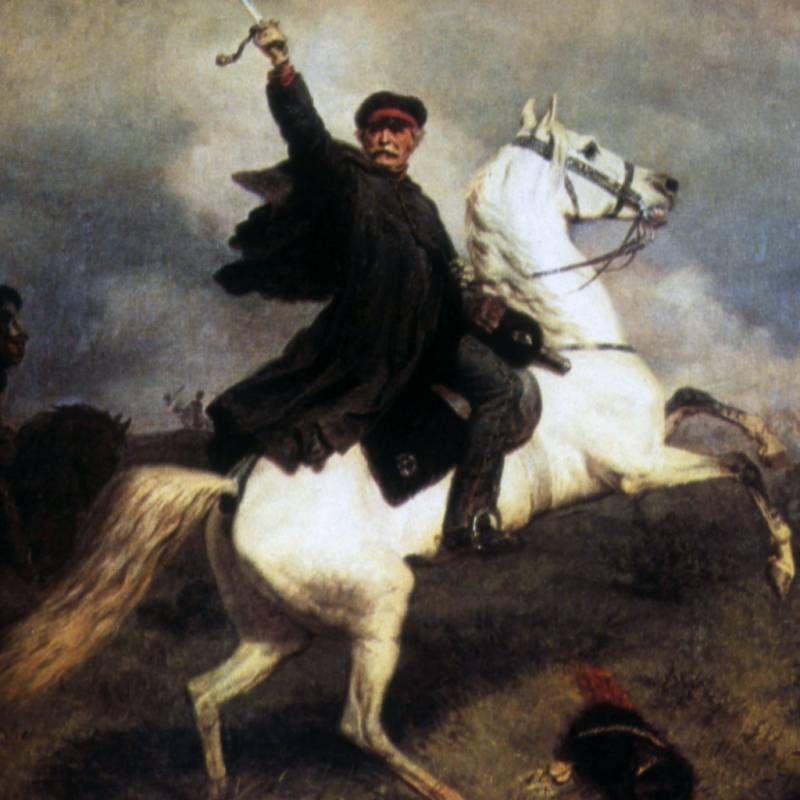
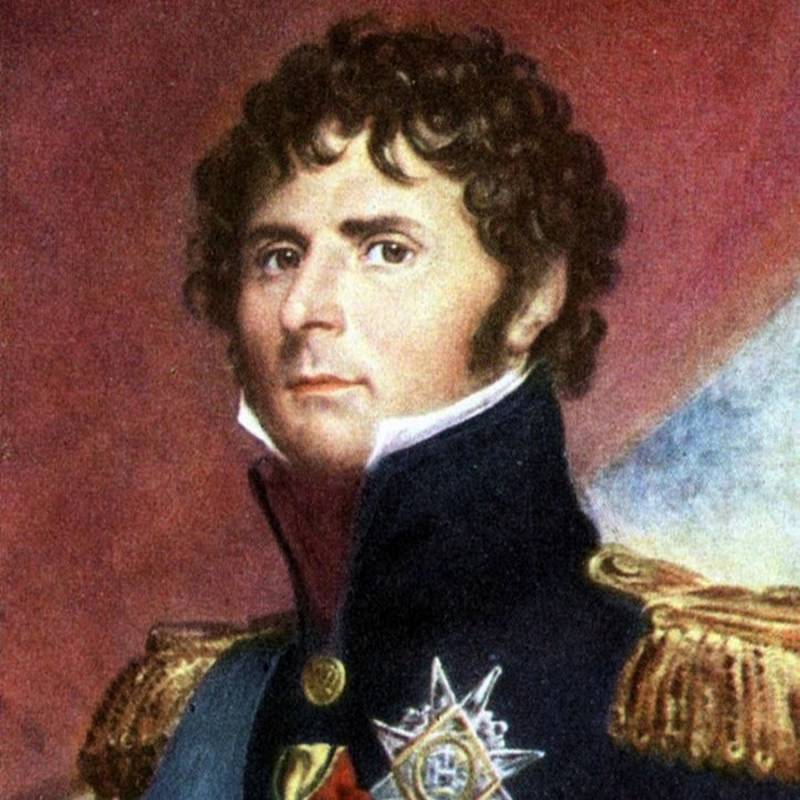
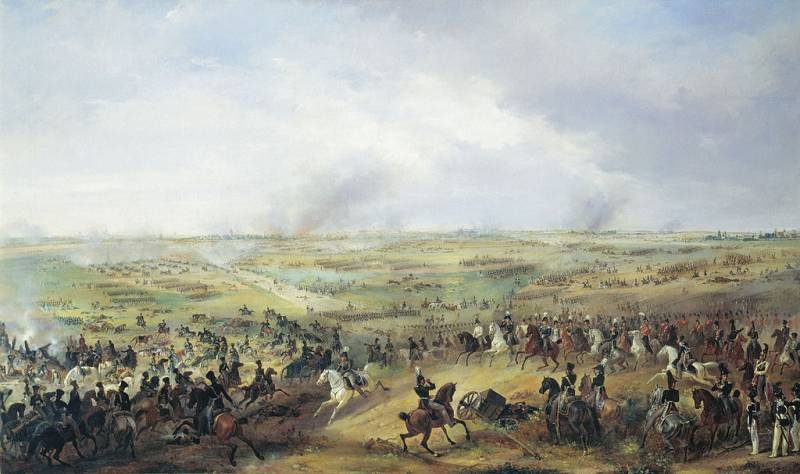
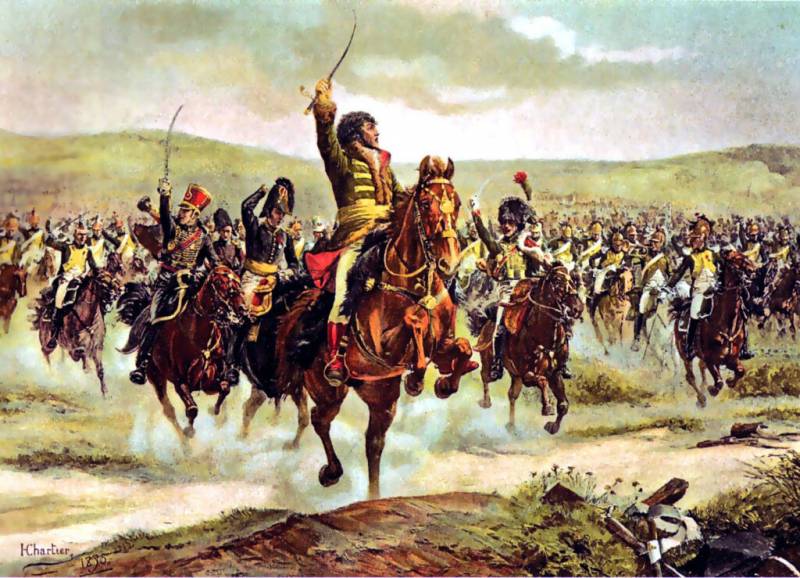
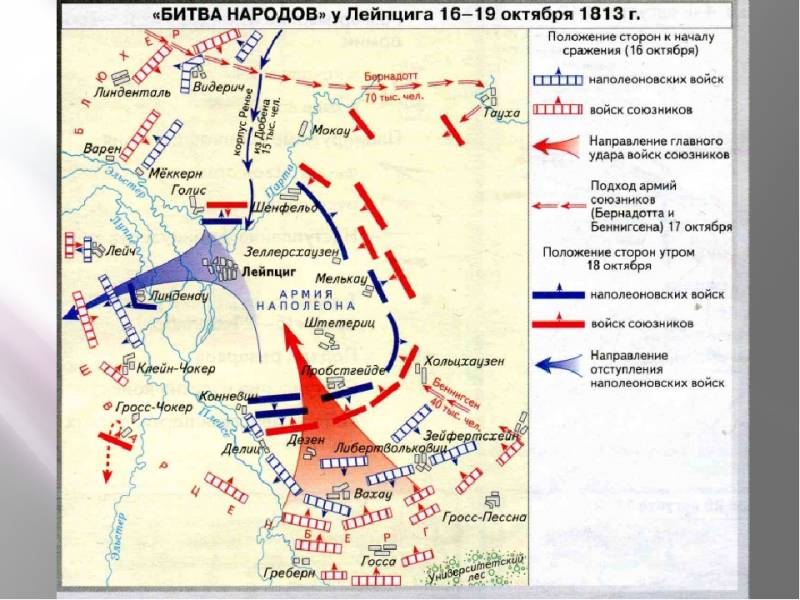
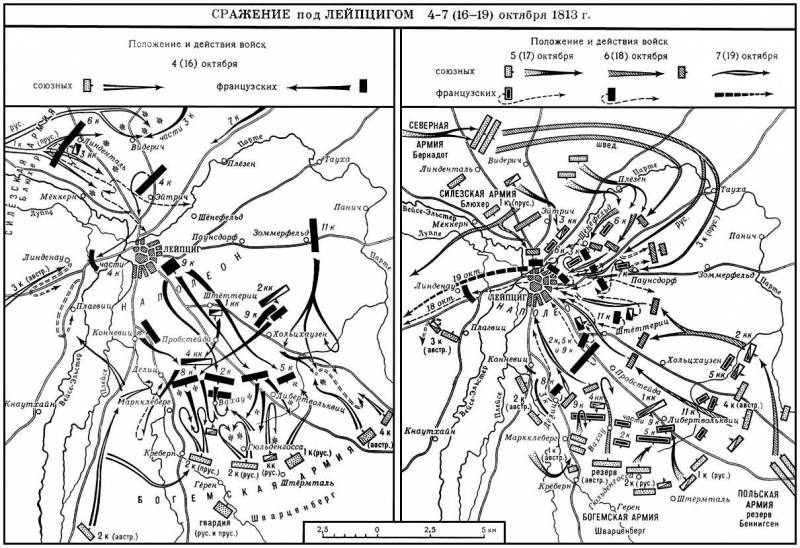
Information